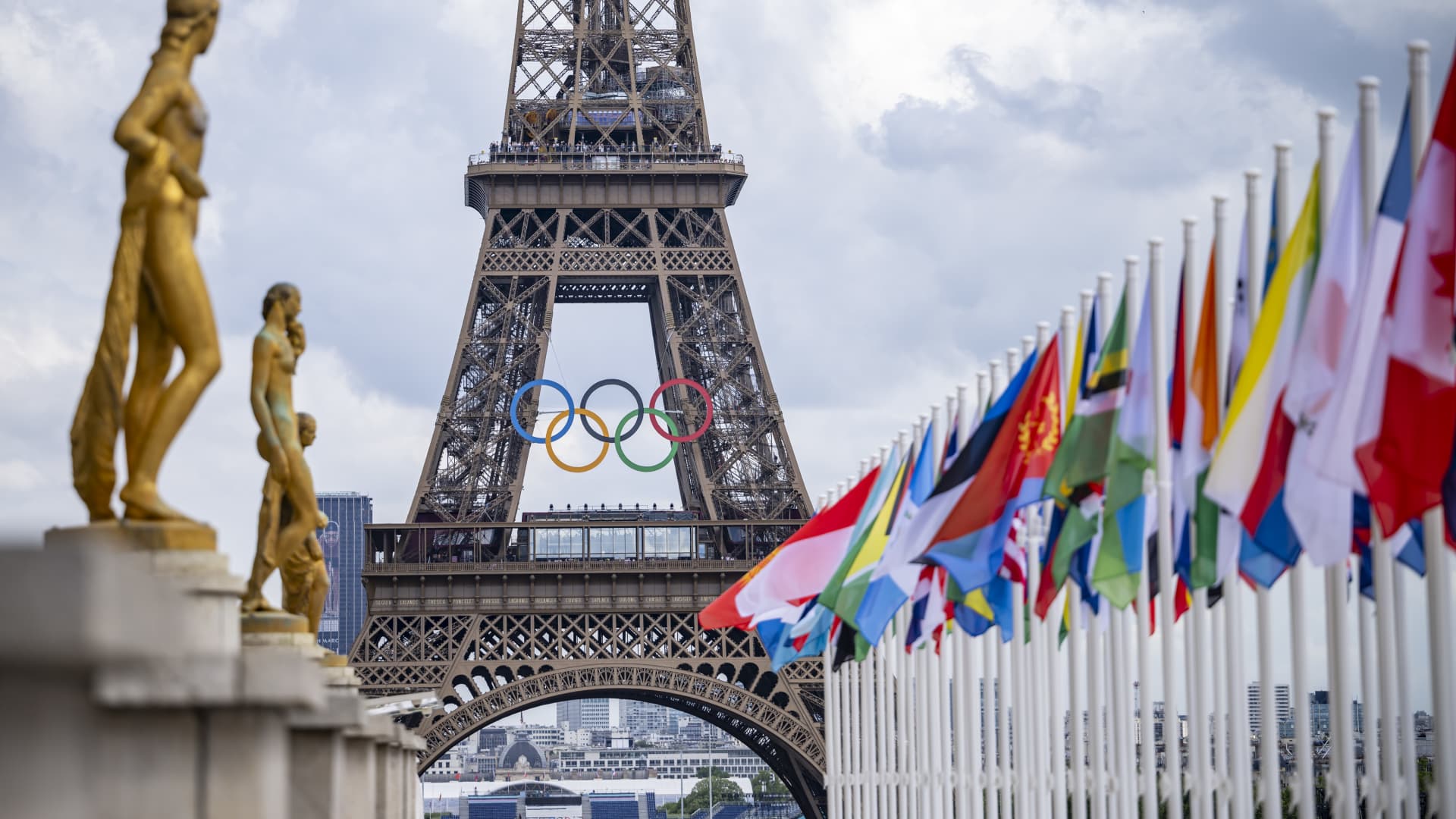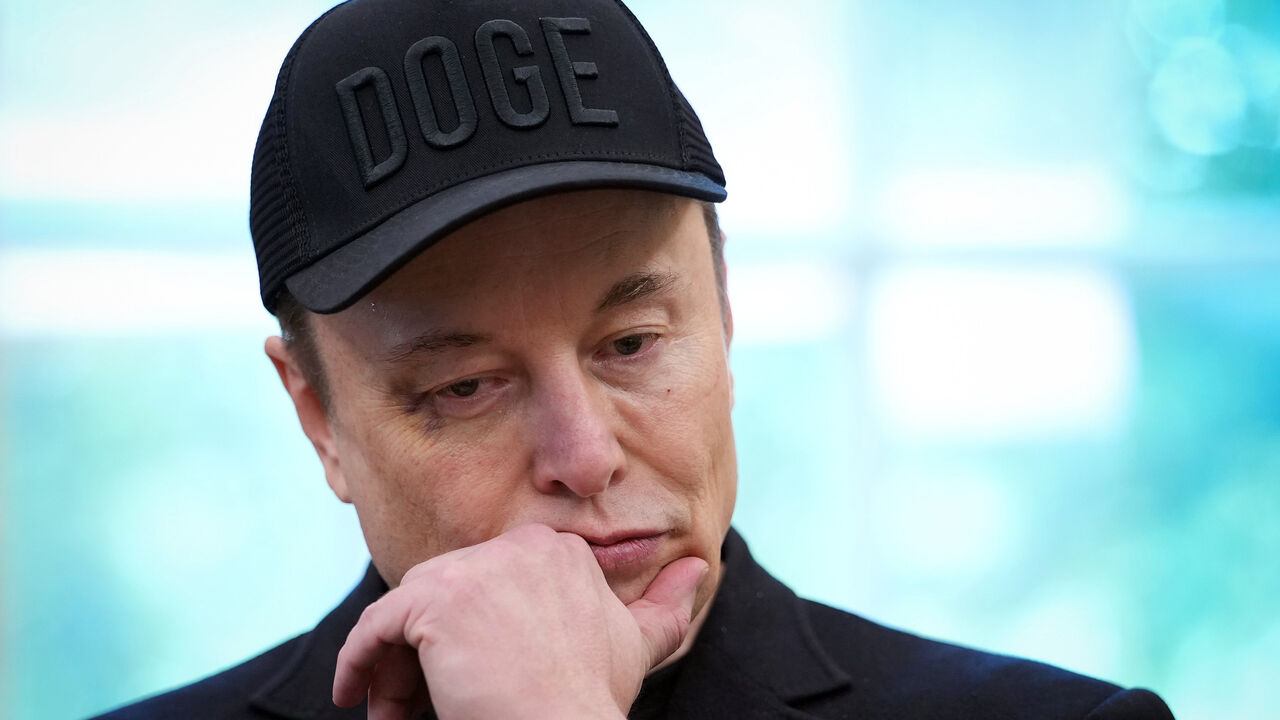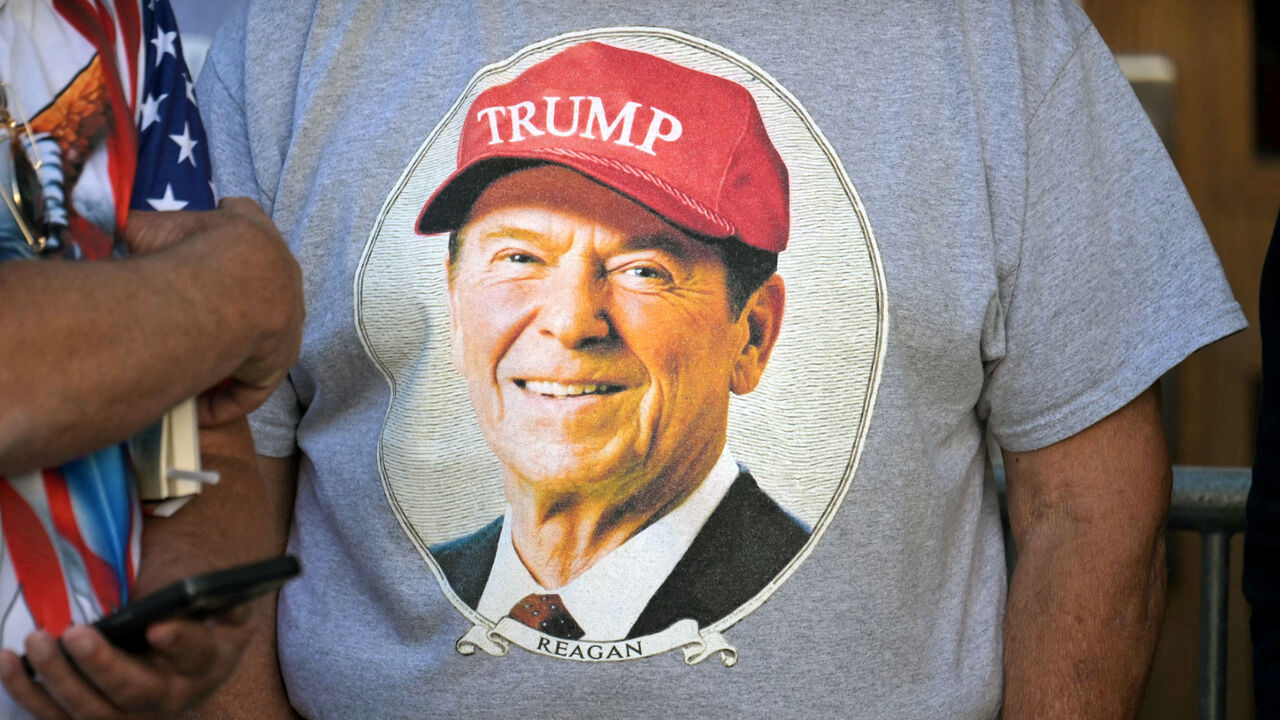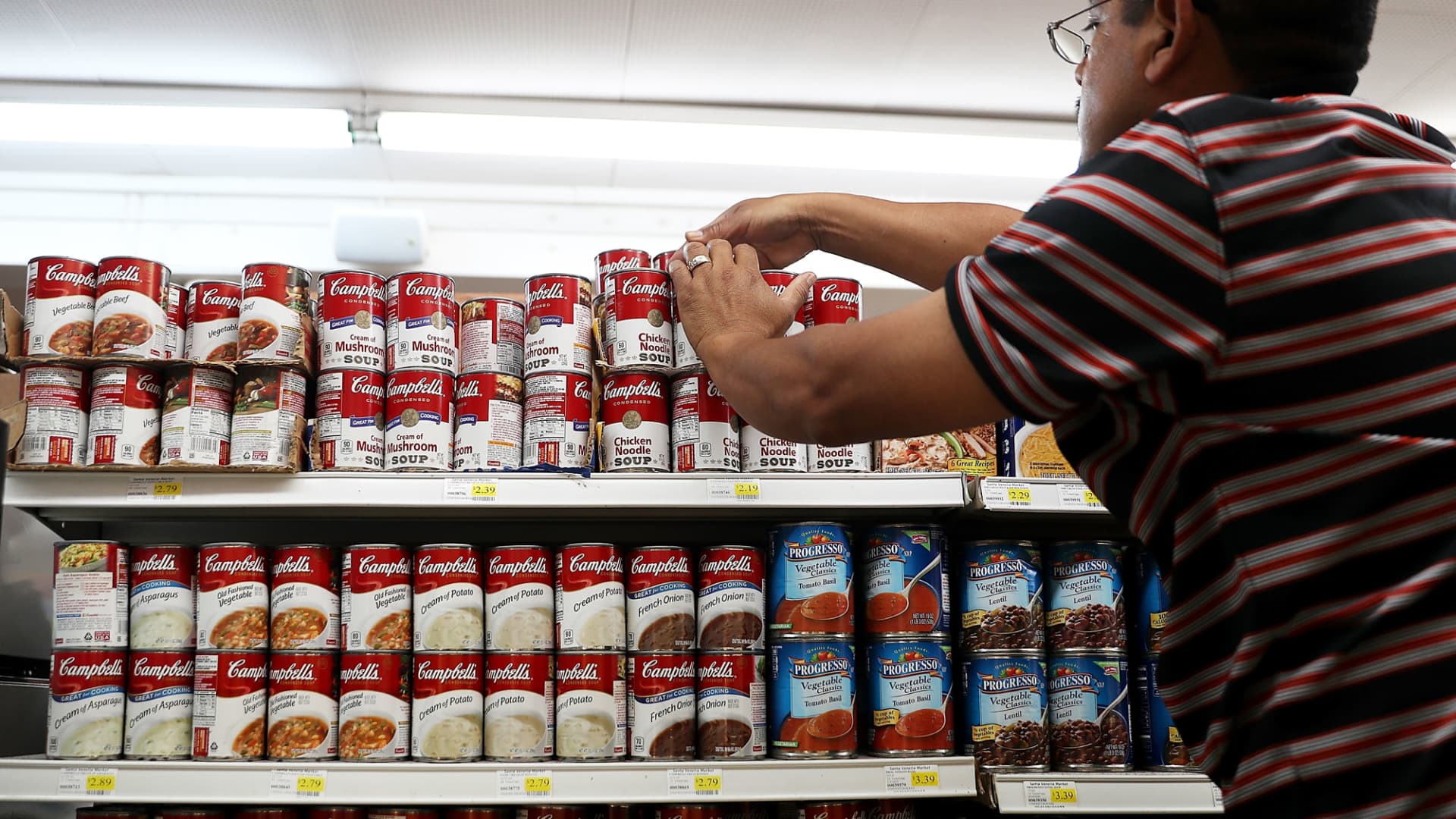A general view of the Eiffel Tower with the Olympics rings pictured with national flags of competing countries from the Place du Trocadero ahead of Paris 2024 Olympic Games on July 21, 2024 in Paris, France.
Kevin Voigt | Getty Images Sport | Getty Images
The Olympic Games are causing a surge in prices, but French consumers aren’t likely to feel its pinch.
Mega events like the Olympics, or even big concerts like Taylor Swift’s Eras tour, lead to a rise in demand for hotel — rooms and airline tickets, as well as other goods and services needed by the influx of visitors. Even so, most consumers may not feel the impact, according to UBS.
Still, the data might suggest otherwise. That’s because the method for calculating consumer price changes might pick up the spiking costs in industries associated with tourism — like hotels — and provide a distorted impression.
“The Olympic Games or a Taylor Swift concert create a sudden demand shock,” wrote Paul Donovan, chief economist at UBS Global Wealth Management, in a recent analyst note. “The measurement method for these prices is more likely to capture the unusual and transitory pattern of demand, and it is here that the increase in consumer price inflation takes place.”
Taylor Swift performs onstage during The Eras Tour at Wembley Stadium on June 21, 2024, in London.
Kevin Mazur | Getty Images
This was already seen with the Eras Tour, as it boosted hotel revenue in cities across the U.S. where Swift was performing.
This year, U.K. hotel prices increased in June, but Donovan said the higher costs “may have been borne by a select group of aficionados of Swift’s music” given that the Eras Tour came to Wembley Stadium that month.
Meanwhile, the Summer Games are causing a similar phenomenon in Paris. “The tourists flocking to Paris for the Olympics, and paying the price, are not representative of French consumers,” he wrote.
A Parisian hotel boom?
Though hotels in the City of Light struggled in the beginning of July, with an estimated 60% drop in occupancy rates that prompted hotels to discount rates, the trend during the Games has reversed. Paris hotel occupancy levels during the Olympics, which started on July 26 and run until Sunday, are up versus last year, according to global real estate data company CoStar. But in the days after the closing ceremony, Paris hotel bookings are projected to drop from a year ago.
The city’s hotel industry has also seen massive year-over-year price increases. For each day during the first full week of this year’s Games from July 28 until Aug. 3, CoStar found a 206% year-over-year growth in weekly revenue per available room. That was fueled by a 17.4 percentage point rise in occupancy to 85.4% as well as a gain in the average daily rate (ADR) of 143%.
The Paris tourist office expects an occupancy rate of 86% from Aug. 5 through Sunday.
A notable price surge has also been seen in other parts of France. In the surrounding Île-de-France region, CoStar found that ADR grew 83.4% in the week ended July 27 from a year ago. At the same time, Paris occupancy fell 5.7 percentage points year over year, while ADR jumped by 90.8%.
“Is your average French person looking to stay in Paris at the moment? No, they are absolutely not, not unless they’re insane or going to the Olympics,” he told CNBC in an interview. “Most of them are unaffected by the surge in prices.”
Olympic gains
That said, the Games are drawing huge numbers of tourists. During the first week alone, the Paris tourist office reported 1.73 million visitors in Greater Paris, an 18.9% increase from 2023.
Of these, 924,000 were international tourists — about a 14% uptick from last year — with the largest number of foreign visitors coming from the U.S. French tourists coming to the city rose 25.1% to 803,000 from last year.
In all, the tourist office has estimated a total of 15.3 million visitors for the Olympic and Paralympic Games, with 11.3 million for the former and 4 million for the latter.
Tourists take selfies in front of the Arc de Triomphe on July 07, 2023 in Paris, France. Paris will host the Summer Olympics from July 26 till August 11, 2024.
Matthias Hangst | Getty Images Sport | Getty Images
This comes as the Games tally record ticket sales. The Paris 2024 Organizing Committee recorded that a combined 10.6 million tickets have been sold or allocated for the Olympic and Paralympic Games so far, with at least 9.4 million for the Olympics and at least 1.2 million for the Paralympics. The previous record was held by the 1996 Atlanta Games at 8.3 million sold or allocated.
“What you find quite often is that tourism unrelated to the Olympiad falls off the edge of a cliff,” Donovan told CNBC, adding that this is what differentiates it from the Eras Tour and other mega events. “It’s a demand shock, but it’s a narrowly focused demand shock, which is sort of the problem on the inflation side, because you’re creating a concentrated period of absolutely supernormal demand. The pricing mechanism goes bananas basically.”
Demand fluctuations have also been seen in other related areas of the Parisian economy, such as the airline industry. Despite some airlines forecasting declines in third-quarter revenue as a result of less traffic to Paris this summer, recent Visa data shows flight bookings to the city have increased 39% in the period leading up to the Olympics over the year-ago period.
Tourists pass near a banner with the Paris 2024 logo before the start of the Paris 2024 Olympic and Paralympic Games on June 17, 2024 in Paris, France.
Chesnot |
Small businesses across the city have also seen gains. Visa found that those businesses received a year-ove-year sales boost of 26% from cardholders in the Games’ first weekend.
While the long-term economic impact of the Paris Olympics is still uncertain, Donovan expects that “on balance it will probably be a positive,” citing past Games that have seen tourism booms like Barcelona in 1992. “If you get it right, it can be a boost,” he said, noting that Summer Olympics tend to garner more attraction than the Winter Olympics in general.
Paris 2024 may generate as much as $12 billion, or 11.1 billion euros, in long-term economic impact, a recent study from the Centre for Law and Economics of Sport estimated. The International Olympic Committee said the next two Summer Olympics could see even more value being created.
“What we see is that the economic impact of the Games is very substantial,” said Christophe Dubi, the Olympic Games executive director. “This is an injection of resources in the local economy that leaves a profound impact now and in the future.”
The IOC’s Agenda 2020 reforms have helped the events become more sustainable economically, according to Victor Matheson, an economist and professor at the College of the Holy Cross.
This will be the first Summer Games projected to cost under $10 billion since Sydney 2000. Money was saved by having 95% of the venues be preexisting or temporary and the strategy could mark a “turning point” for the the Olympic movement, Matheson said.
“The IOC has allowed Paris to come through with an Olympics that doesn’t build these billion-dollar monuments at the Olympics and doesn’t gold-plate everything there,” he said. “Those sorts of things that can drive up costs pretty quickly, they don’t appear to be pushing that.”
Disclosure: CNBC parent NBCUniversal owns NBC Sports and NBC Olympics. NBC Olympics is the U.S. broadcast rights holder to all Summer and Winter Games through 2032.

 Personal Finance1 week ago
Personal Finance1 week ago
 Blog Post1 week ago
Blog Post1 week ago
 Economics6 days ago
Economics6 days ago
 Economics1 week ago
Economics1 week ago
 Accounting6 days ago
Accounting6 days ago
 Personal Finance1 week ago
Personal Finance1 week ago
 Economics6 days ago
Economics6 days ago
 Personal Finance6 days ago
Personal Finance6 days ago





















